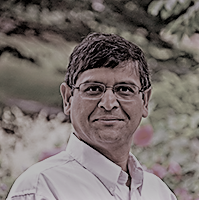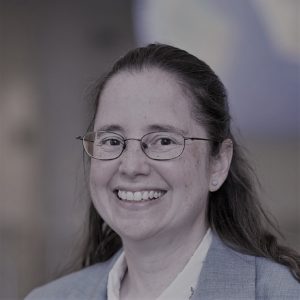Panelists



Topher White is a Conservation Technologist and the CEO and Founder of Rainforest Connection (RFCx.org). As an inventor, field engineer and social entrepreneur, his accolades include such titles as National Geographic “Explorer”, World Economic Forum “Young Global Leader”, Rolex “Associate Laureate”, Draper-Richards-Kaplan Fellow and an IEEE “Engineering Hero”.


Emily is a biologist with 20 years of experience working in coastal and arctic ecosystems. Passionate about working with multidisciplinary teams and sustainable growth, she is the co-founder and CEO of Whale Seeker.
Whale Seeker uses AI to automate whale detection from imagery. They help scale whale detection for many clients ranging from governments, private industry, and NGOs. As a Pending B Corp company, Whale Seeker cares about the ethics surrounding the development of their AI as well as the use of their solutions.

Panelist
Keynote Speakers

Vipin Kumar is a Regents Professor at the University of Minnesota, where he holds the William Norris Endowed Chair in the Department of Computer Science and Engineering.
He has authored over 400 research articles, and has coedited or coauthored 10 books including two text books “Introduction to Parallel Computing” and “Introduction to Data Mining”, that are used world-wide and have been translated into many languages. Kumar’s current major research focus is on bringing the power of big data and machine learning to understand the impact of human induced changes on the Earth and its environment. Kumar served as the Lead PI of a 5-year, $10 Million project, “Understanding Climate Change – A Data Driven Approach”, funded by the NSF’s Expeditions in Computing program that is aimed at pushing the boundaries of computer science research. Kumar has served as chair/co-chair for many international conferences in the area of data mining, big data, and high performance computing, including 25th SIGKDD Conference on Knowledge Discovery and Data Mining (KDD 2019).
Kumar has been elected a Fellow of the American Association for Advancement for Science (AAAS), Association for Computing Machinery (ACM), Institute of Electrical and Electronics Engineers (IEEE), and Society for Industrial and Applied Mathematics (SIAM). Kumar’s foundational research in data mining and high performance computing has been honored by the ACM SIGKDD 2012 Innovation Award, which is the highest award for technical excellence in the field of Knowledge Discovery and Data Mining (KDD), and the 2016 IEEE Computer Society Sidney Fernbach Award, one of IEEE Computer Society’s highest awards in high-performance computing.

Artificial Intelligence (AI) and Machine Learning (ML) have demonstrated that they can be used to improve prediction across a wide variety of environmental science phenomena. However, there is a fundamental lack of trust of the algorithms by scientific end-users, including decision makers such as forecasters and emergency managers, especially in life-or-death situations. The NSF AI Institute for Research on Trustworthy AI in Weather, Climate, and Coastal Oceanography (AI2ES) is creating novel trustworthy AI for a variety of weather, climate, and coastal oceanography applications. To do this, we are developing our novel AI methods in collaborative work with both atmospheric scientists and social scientists, who study the needs and perceptions of scientific ends users about the AI/ML methods.
As the climate is changing and high-impact events become more common and impactful, it is important that any AI we develop is developed and used in an ethical and responsible manner. This includes ensuring that the AI focuses on environmental justice and provides solutions for all populations, particularly the disadvantaged populations that are often even more impacted by climate change and extreme weather. In this talk, we also discuss AI2ES’s work to develop ethical and responsible AI for weather and climate applications.
Dr McGovern is a Lloyd G. and Joyce Austin Presidential Professor the School of Computer Science and School of Meteorology at the University of Oklahoma. She is also the Director of the NSF AI Institute for Research on Trustworthy AI in Weather, Climate, and Coastal Oceanography. Her research focuses on developing trustworthy artificial intelligence and machine learning methods for a high-impact weather and environmental science applications. She earned her PhD in Computer Science at the University of Massachusetts Amherst and her B.S. in Math/Computer Science at Carnegie Mellon University.







